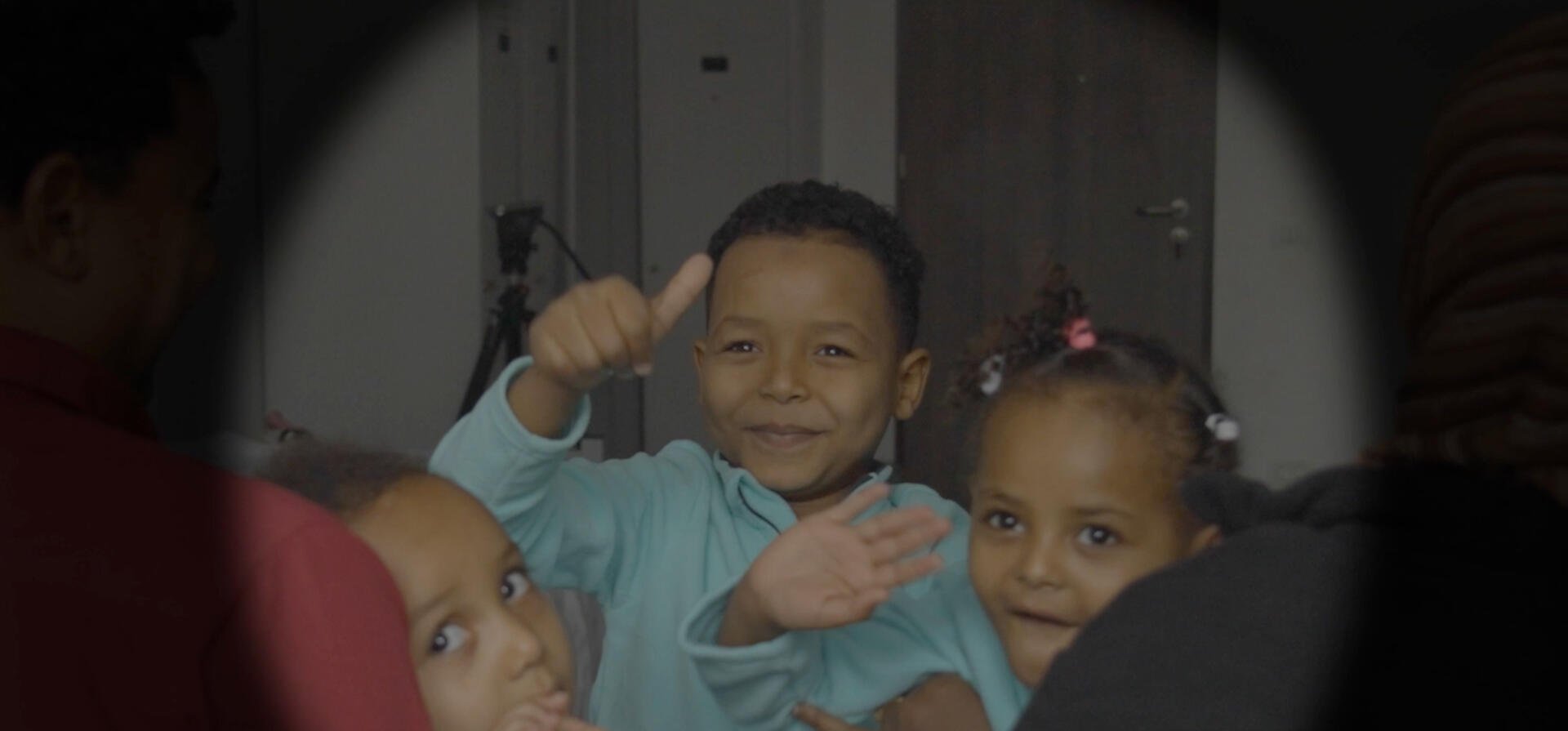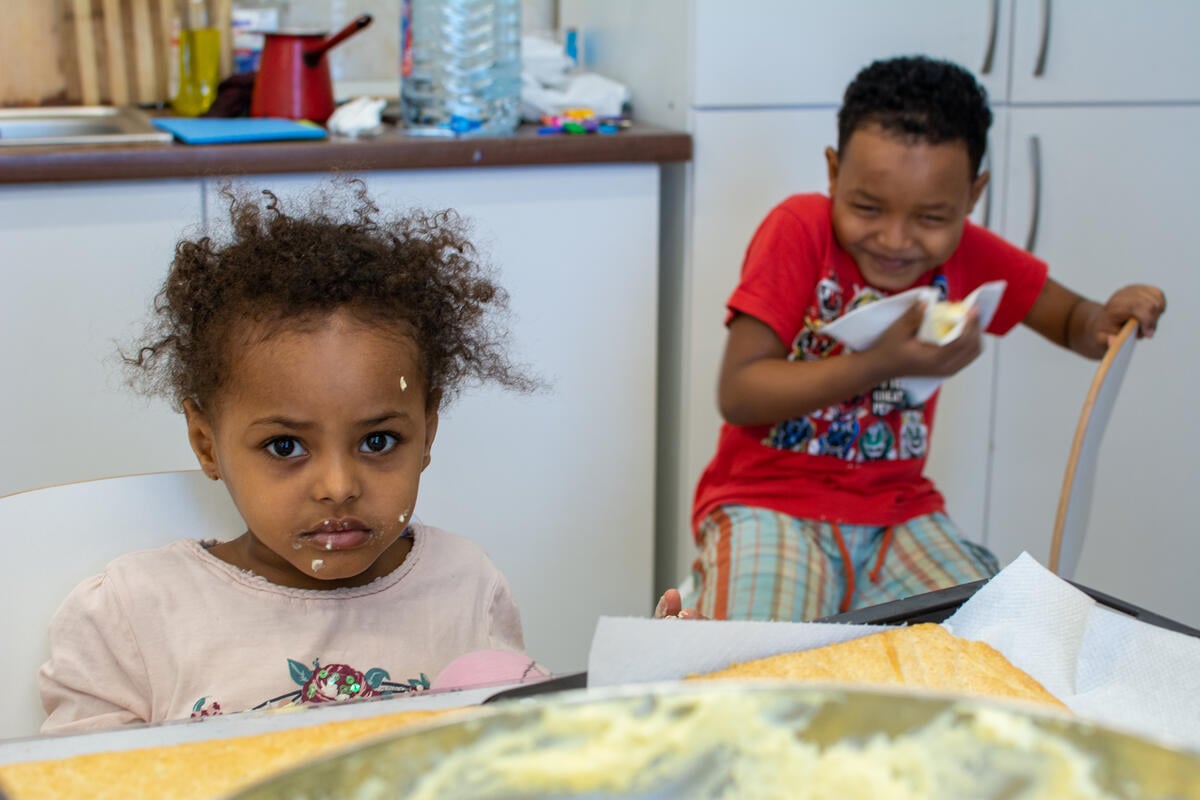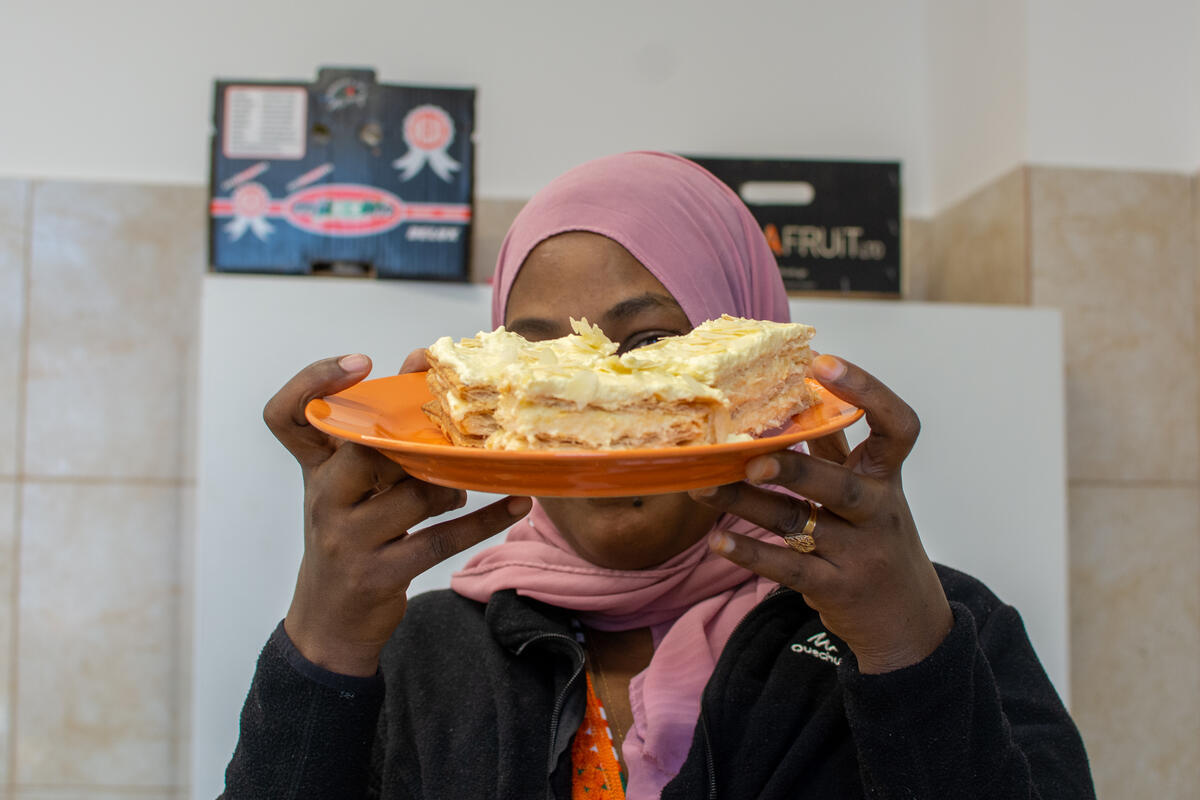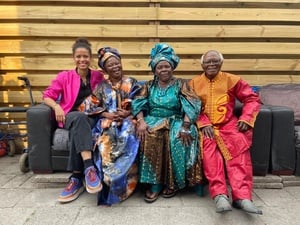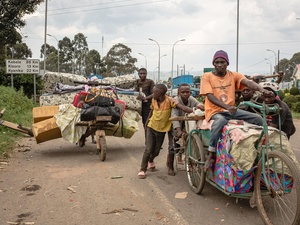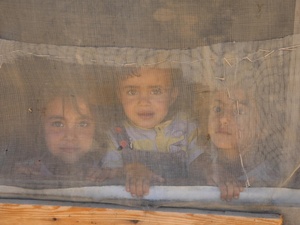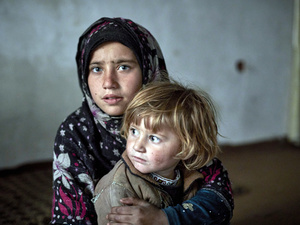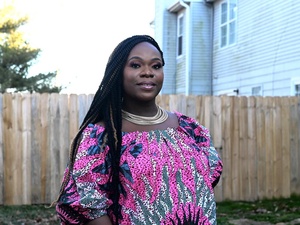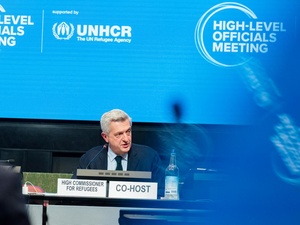New home beckons for Eritrean family who spent a decade as refugees
Mariam has spent the last decade since she fled Eritrea longing for a safe and stable home for her family. Now that is finally within reach as she, her husband and three children get ready to move to the Netherlands under a resettlement scheme.
In advance, she is doing everything possible to prepare. Because she loves to cook, that even includes learning how to make a Dutch dessert called "tompouce".
The vanilla and cream dessert slice is popular in the Netherlands and making it is a symbol of her hopes for integrating into the new society.
“What we know about the Netherlands is that it is a good country … We will work and we will help our children to grow and receive the education they need,” said Mariam, 34.
Since December, she has resided at an Emergency Transit Centre (ETC) in Timisoara, a city in western Romania, with her husband Mohammad and children Karim, seven, Feruz, five, and Ferdoz, aged three. Around 30 people live at the centre, although it has capacity for around 200.
Resettlement for the most vulnerable refugees to a third country where they can rebuild their lives is a priority for UNHCR, the UN Refugee Agency, but resettlement needs far surpass places available. Last year, less than 23,000 refugees were resettled through UNHCR, the lowest number in almost two decades.
Mariam’s story shows why resettlement matters. She and Muhammad initially fled to the Sudanese capital, Khartoum, where they lived for eight years in difficult circumstances. It was there that they had their children.
“Sometimes I could not find work. Sometimes I could not pay the rent. Other times we had nothing to eat. It was tough and the children were young,” said Muhammad, 37.
Their uncertain status in Sudan meant they were at constant risk of arrest and they eventually moved on to Tripoli, the capital of Libya. There they were imprisoned by a smuggler. Given their precarious situation, UNHCR evacuated them to Romania via Niger under its Emergency Transit Mechanism.
The mechanism is a response to the critical humanitarian situation and deteriorating conditions for asylum-seekers in Libya. Under it, some vulnerable individuals and families are offered a temporary stay in Niger.
If they are then assessed as eligible for resettlement and very vulnerable, they are then transferred to the ETC in Timisoara while the resettlement procedure is completed – a process that usually takes around three or four months.
"We are starting to relax after the hard time that we had."
"Until we leave for our final destination, we are enjoying our stay here. We really feel safe and we are starting to relax after the hard time that we had,” said Mariam.
Resettlement places were in short supply even before the COVID-19 pandemic slowed them to a trickle last year. This year, however, offers a chance for governments to resume resettlement programmes and UNHCR is calling for States to increase the places they make available.
“UNHCR appreciates the efforts of States who have now resumed resettlement despite the challenges, which include the pandemic,” said Nisreen Rubaian, UNHCR’s Representative in Romania.
“Our colleagues on the ground work closely with resettlement states to ensure that refugees accepted for resettlement can depart as soon as possible and rebuild their lives in their new country,” she said.
Mariam and her family have taken advantage of their stay in the historic city of Timisoara to see the sights and soon they will start cultural orientation lessons ahead of their move in the coming weeks.
“The children are adaptable and quick to learn. I’m impressed by how quickly they understand things, considering the context they come from,” said Sofia Damșe, a psychologist with UNHCR’s partner AIDROM.
The children’s future is their parent’s primary concern when they think about their move to the Netherlands.
“The most important thing for us is to work and support our children to grow up, to go to school,” said Mariam.
Muhammad said he wants the children to retain their links to Eritrea and its culture, but he also wants them to embrace the Netherlands. He would like them to become doctors or pilots, but his main priority is for them to learn strong social values.
“We would like our children to help those in need,” he said.
*Names have been changed at the request of the refugees.


